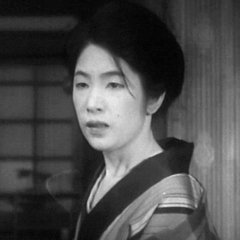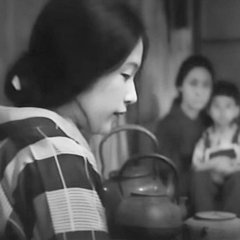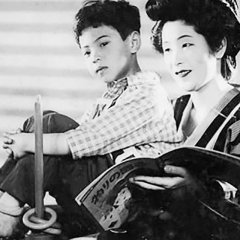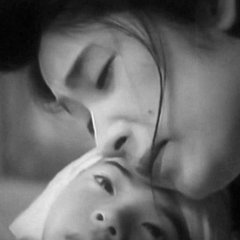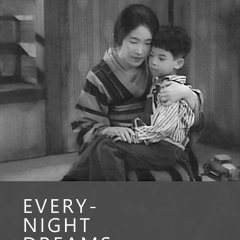In this film,a woman whose husband had deserted her, following the birth of her child. For lack of any better option, she has been forced to support her son and herself as working as a hostess at a waterfront bar. When her ne'er-do-well husband returns, her first impulse is to reject him, but her neighbors prevail on her to give him a second chance... Edit Translation
- English
- magyar / magyar nyelv
- dansk
- Norsk
- Native Title: 夜ごとの夢
- Also Known As: Each Night I Dream , Nightly Dreams , Yogoto no Yume
- Screenwriter & Director: Naruse Mikio
- Screenwriter: Ikeda Tadao
- Genres: Historical, Life, Drama, Melodrama
Cast & Credits
- Kurishima SumikoOmitsuMain Role
- Saito TatsuoMizuhara [Omitsu's husband]Support Role
- Tani ReikoMorieSupport Role
- Arai Jun[Neighbor]Guest Role
- Yoshikawa Mitsuko[Neighbor's wife]Guest Role
- Iida Choko[Landlady]Guest Role
Reviews

This review may contain spoilers
This 1933 silent film portrayed a strong FL who had to work as a hostess to provide for her son after her husband abandoned them during depression era Japan. Director Naruse Mikio focused this film, at times in a melodramatic way, on some of the struggles people endured during this economically depressed era. Omitsu was relentless and dedicated to her child and the friends who helped her. She had a backbone of steel hidden under her kimono. Even when her husband showed back up in her life after three years, penniless and nearly shoeless, she initially refused him. In the end she took him in, unlike some older movies where the husband is a total mooch and abusive, Mizuhara was a good father and at least attempted to find work. Turned away at every potential job because of his physical frailty, his mental and emotional frailty began to decline as well.
The version I watched had no music which was a little jarring at first, but I found the rhythm quickly. The film had also faded in places, not enough to detract from the story though. Naruse used symbolic foreshadowing with a child’s toy and images of the water to good effect. For a 1933 silent film, the cinematography, shots, and sets were all quite good.
Kurishima’s accomplished performance as a woman who refused to give up on life and her child’s future was beauty to behold. Saito Tatsuo, as the ne’er do well husband, gave his character enough likeability as he played with the children to help the viewer understand what might have drawn Kurishima to him. The supporting characters rounded out the performances well without resorting to overacting. I’m always amazed at how well a story can be told with minimal dialogue, and this was one of those cases.
Every Night Dreams briefly dipped into melodrama though given the times, perhaps not that much. Life was often balanced on the edge of a knife during those dark days for many people. Some had the strength to survive, and some did not. Omitsu blazed a trail for future female characters who were not afraid of the future but who faced it head on.
Was this review helpful to you?
Recommendations
There have been no recommendations submitted. Be the first and add one.








